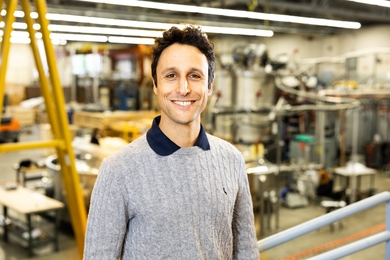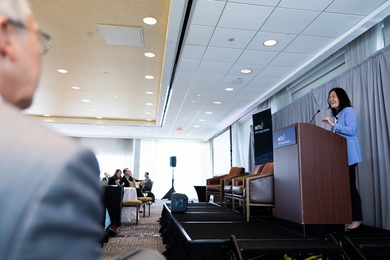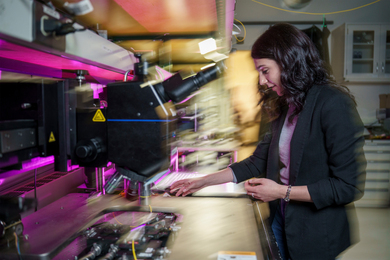Project I-Campus, the MIT-Microsoft alliance for research in educational technology, has begun issuing calls for proposals from the MIT community.
Preliminary proposals will be due December 10. Complete information on proposal submissions can be found on the I-Campus web site.
I-Campus was announced in October as a $25 million, five-year research collaboration between MIT and Microsoft Research. The project has four broad objectives: creating technologies and content to improve student learning; creating and deploying technologies toassist faculty in teaching as well as in creating and delivering courses and learning modules; creating enterprise-level tools to improve university administration; and demonstrating new ways to collaborate across traditional university-company, university-university, and company-company boundaries.
Projects funded by I-Campus are intended to be large-scale efforts that focus on educational impact, with clear implementation plans and demonstrated MIT institutional commitment. Project submissions are open to anyone in the MIT community. Based on the preliminary proposals, the I-Campus Steering Committee will work with successful proposers to develop final proposals for funding, which will be due at the end of January. There will also be a special submission round in January for proposals from student groups.
Funding should be in place in time for projects to begin by mid-spring or summer of 2000.
Dean of Engineering Thomas Magnanti and Professor of Computer Science and Engineering Hal Abelson co-direct I-Campus and serve on the project's steering committee along with MIT Assistant Provost Vijay Kumar. Microsoft members of the committee are Peter Path�, general manager of Microsoft Research; William Vablais, Microsoft research manager of university relations; and Anoop Gupta, manager of the Collaboration and Multimedia Group at Microsoft Research. Project manager for Microsoft Research is Steve White.
Earlier this fall, I-Campus sponsored two workshops aimed at identifying targets of opportunity for I-Campus funding. Ideas emerging from those workshops included creating scalable ways to replace large lectures by small classes and active learning, developing techniques for engaging students in collaborative engineering design, and building on communications technology to include alumni/ae as active participants in the MIT community as learners, teachers and mentors.
"We are open to proposals of all sorts. Our primary selection criteria will be the anticipated significance of the educational impact, the alignment of the project with I-Campus's broad objectives and the educational excellence of the innovation," Professor Abelson said.
Further information can be found at the I-Campus web site listed above. Interested members of the MIT community are encouraged to contact Project I-Campus by sending e-mail to i-campus@mit.edu.
There will also be an informational meeting for people preparing preliminary proposals at MIT on Tuesday, Dec. 7 from 5-6:30pm in Rm 4-231.
A version of this article appeared in MIT Tech Talk on November 24, 1999.





